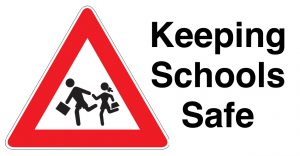 We at ACSI are spotlighting how schools are responding to the unfortunate phenomenon of school mass shootings in primary, secondary, and higher education settings in the U.S. I believe Christian schools have a unique perspective to offer both as private schools and as a faith community.
We at ACSI are spotlighting how schools are responding to the unfortunate phenomenon of school mass shootings in primary, secondary, and higher education settings in the U.S. I believe Christian schools have a unique perspective to offer both as private schools and as a faith community.
No School Is Immune to Violence
As we have sought input from schools on this difficult topic, I was reminded that we have been here before—starting at least as early as the University of Texas clock tower shooting in 1966. I personally recall memories of watching and reading about the 1999 shooting at Columbine High School in Colorado as it unfolded. However, the school mass shooting that reverberates stronger than any other in my mind is the 2006 tragedy at Nickel Mines, deep in Pennsylvania Amish country. A local citizen unknown to the school community entered a one-room Amish schoolhouse, bound all 10 female students, shot them, and finally turned the gun on himself. It was the response of the Amish community that garnered the attention of the nation with their immediate and unconditional forgiveness of the shooter.
Columbine and Nickel Mines run the continuum of the issues and concerns that loom for all educational institutions. Columbine is a large public high school in the suburbs of Denver and the perpetrators were known to the school and victims. Nickel Mines is a private, religious, rural school with just one classroom of students and the violence was perpetrated by someone unfamiliar to the school. Ultimately, no school is immune based on acquaintance, size, geography, or governance.
Emphasizing Community Health
One area Christian education should have much to add to the debate is in regards to the mental health of our communities. Most, while not all, mass school shootings have been perpetrated by someone who is experiencing significant mental health concerns. Whether the school was a source of that person’s angst or not, we as communities of faith should seek to help bring healing and care to those who are suffering.
On December 14, 2012, 20 elementary students were shot and killed in a Connecticut school; on the same day, halfway across the world, 23 students were stabbed or slashed in their school in the Chinese providence of Guangxi. Since China has tight control over gun access, China has a growing problem of school attacks with bladed weapons—primarily from the mentally unstable or distraught.
An emphasis on the health of the community raises the conversation out of the polarized gun control debate. There is a place to discuss the regulation of guns, but our society must also realize that fixing gun access concerns is not a “silver bullet” to school violence, nor is fortifying schools with weapons. Guns are but one piece that must be addressed in the larger topic of school mass shootings. Put another way, the regulation of guns only deals with a symptom and not with the root cause(s). That is not to say we do not address symptoms, but rather we need to realize the distinction between symptom and cause(s) and make sure we are seeking to address cause(s).
Safety in Private vs. Public Schools
Governments should be mindful that the citizenry it serves and protects extends beyond the playgrounds of government schools to private schools. Just as fire and rescue crews respond to emergencies at private and public schools alike, programs created to provide safety resources to schools should not be limited to just public schools. The life of a child attending a private school is just as valuable as the life of a child attending a government school. Florida is being touted for its recent gun law reform, which included expansive school and public safety programs. The irony is that private schools are excluded from participating in the vast majority of these newly created programs. Maybe that’s a good thing, or maybe it’s not—but I wonder if the safety of children attending private schools was ever considered by legislators?
Regardless of school type, there are no quick fixes or easy solutions to the school mass violence concerns faced by students, parents, schools, and society at large. There are some things we do know, however. Psalm 127:1b (NIV) tells us, “Unless the Lord watches over the city, the guards stand watch in vain.” Yes we need to be prudent and work toward reasonable ways of caring for our communities, but ultimately God is our protector and our refuge. Let’s not forget, nor forgo, that our strongest defense is prayer.
Starting a Conversation
We’re working to start a conversation in our unique segment of private Christian schools to see what responses schools are mounting to these concerns, and how that might help inform the greater debate on school safety. In the next edition of the ACSI Legal Legislative Update* we are running a four-part series spotlighting different viewpoints—from a Mennonite school that does not believe in taking up arms, to a suburban Christian school that has decided to responsibly arm staff. Additionally, we have resources on crisis planning and the importance of practicing crisis plans on our website, at https://www.acsi.org/schoolcrisis. We encourage you to explore those resources and join us as we continue the conversation with Christian school leaders.
[Author’s Note: ACSI has no stated position on gun control nor the arming of staff in schools; thus, the views expressed here are the author’s. ACSI does advocate for the freedom of each individual school to decide for itself how it will choose to respond and protect its community.]
*An ACSI membership benefit
About the Author
 Philip Scott’s background is a blend of education, religion, and law. He has taught middle and high school students in Christian schools. He is twice a graduate of Liberty University—in education and from their law school—and has studied theology and law at the Southern Baptist Theological Seminary. He currently serves as ACSI’s In-House Counsel. He can be reached via email at philip_scott@acsi.org
Philip Scott’s background is a blend of education, religion, and law. He has taught middle and high school students in Christian schools. He is twice a graduate of Liberty University—in education and from their law school—and has studied theology and law at the Southern Baptist Theological Seminary. He currently serves as ACSI’s In-House Counsel. He can be reached via email at philip_scott@acsi.org

